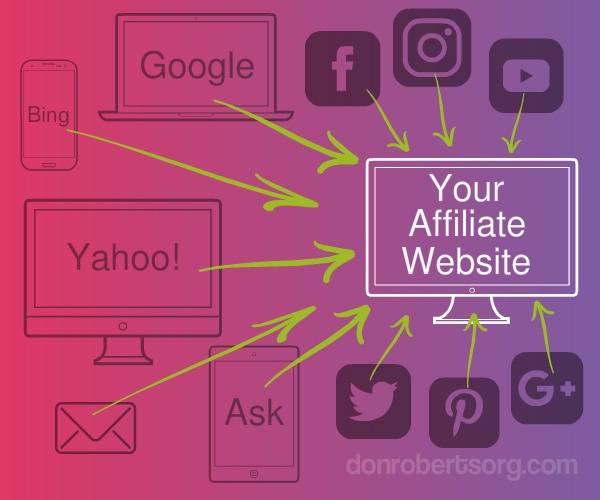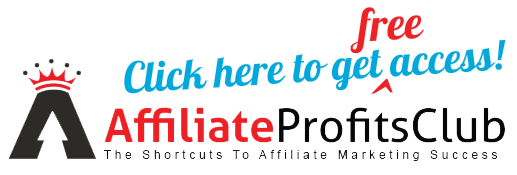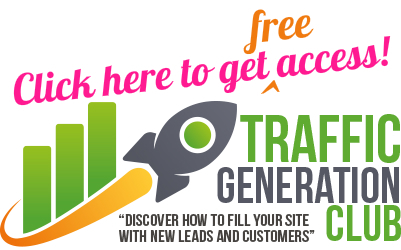Web Traffic
Website Traffic Equals Affiliate Revenue
Summary - You've now got three of the four pillars in place for affiliate marketing success. You've selected an affiliate niche that your passionate about. You've identified one or more ways to monetize your affiliate site. You've built a strong affiliate website. Yet, one more critical piece must be put in-place to get the affiliate success you're hoping for. To get & increase website traffic is to increase website revenue. If you want to find-out effective ways to increase website traffic, keep reading...
Website Reach
You can have the nicest-looking website - with the best pre-sell article describing the best affiliate products. But, without web traffic to your affiliate site, you're not going to be making money online. You get website traffic when you increase website reach.
Ways To Increase Website Reach
There are several ways to essentially get your target audience to notice your website.

Extend your affiliate marketing website reach by making your site more findable.
Make Your Website Findable In The Search Results
Many affiliate websites are buried somewhere in the search results. But, there's a way to turn that around. And, I'll just kick this article off by saying that affiliate marketing and Search Engine Optimization (SEO) go hand-in-hand.
SEO attempts to maximize the number of visitors to a website by essentially influencing of the search engines to favor a targeted website page in their search engine results listings. The higher-up in the search results, the more visitors. ~ Don Roberts
Google tells us that most search results traffic comes from the first page of search results. So, it's obvious that you want to get your site into favorable positioning on the first page of the search results.
90% of searchers don't go past the first page of search results. ~ Google
From a recent Google Organic Click Through Study by the Internet Marketing Ninjas, a significant percentage of that traffic comes from the first three search results listings.
Organic Website Traffic
Site traffic produced by SEO efforts is also referred to as "organic" traffic, "natural" traffic, "free" traffic, etc. The search results have "organic" listings, as well as "paid" listings. The idea is that any listing that shows up in the search results for a given search query is a natural or organic result - in other words, not a paid ad.
But, don't confuse organic traffic, natural traffic, or even free website traffic with always being free.
When "Free" Is A Relative Term
Historically, when an Internet marketer performed SEO on a website or other online property, the effects of those efforts typically lasted over time. In other words, once the SEO efforts were in place, the affiliate marketer typically didn't have any additional efforts or expenses - beyond an occasional tweak here & there.
While you can do a lot of the work yourself, you (or someone else) will be investing time & effort in performing SEO activities related to your affiliate marketing website. And, there are related training courses & tools that come with a price that can help make SEO much easier & more effective.
When SEO Actually Costs Money
While you can learn SEO methods from free online sources (like, Search Engine Watch, Search Engine Journal, & Search Engine Roundtable), you likely may want to invest in learning advanced SEO techniques that work in today's SEO environment. When I say "today's SEO environment", I refer to the frequent changes that Google and the other search engines make continually to their search algorithms. For example, in SEO circles, it's well-known that Google makes 500+ major & minor changes to it's search algorithm every year. Those "algorithm" changes directly impact the search results listings.
Besides investing in the knowledge of current best practices, you may also want to invest in one or more SEO tools to help you with attaining favorable search results positioning, as well as monitoring website statistics. (See the Ninja Strategies section below)
SEO Techniques To Make Your Website Easier To Find
While this article is more of an overview of the importance of website traffic for being able to earn affiliate commissions, there are some basic SEO things every affiliate marketer should do. For example (remember...these are basic examples):
Tip - Pay Attention to Page-load Speed & Mobile-friendliness
There are several things a website needs to have in-place to attain - and maintain - favorable search results rankings. One of them that is now very significant is page-load speed & mobile responsiveness. Google now offers different search results for mobile users. If your affiliate website loads slowly on mobile devices OR attempts to display a desktop formatted page on a mobile screen, you can forget about favorable search results positioning - especially in the long run. That's significant because on most websites nowadays, mobile traffic accounts for more than half of the website traffic.
Bottom-line: Make sure your website loads quickly - and is considered to be mobile-friendly by Google. You can check your site here.
Make Your Website Visible In The Social Media Arena
With with well over a billion people in the social media arena, chances are highly likely that your target audience is on one of the main social media platforms
...platforms like Facebook, Instagram, & Twitter.
YouTube, too.
Facebook Basics
At a high-level, you can easily join niche-related Facebook groups to get close to your audience. Just don't spam the group with repeat, thinly-veiled affiliate promotion posts. Page admins hate that - and will likely kick you out of the group fast.
You can also create one or more Facebook pages of your own that are related to your niche. Of course, on your Facebook pages, you can make posts announcing your new articles on your affiliate website - or special offers. Just be sure to provide helpful info on the subject for about half of your posts so as not to wear out anyone who's following your page.
You may or may not know that Facebook has an insanely powerful advertising database of users. With it's powerful segmentation feature, you can really dial-in your target audience to advertise to. You just need to be aware of Facebook's advertising policies so that your promotions will be accepted. You can send traffic to your affiliate site, your Facebook page, or both. Just don't try to send traffic directly to affiliate offer landing pages (the landing pages you would send visitors to who clicked an affiliate link on your website). Facebook doesn't seem to "Like" those. =)
Facebook Advanced
While you can - and probably should - do the Facebook Basics mentioned above, you can also opt for a more advanced strategy. While this technique crosses-over with the paid way to extend the reach of your affiliate site, it can be more effective & get you results faster than doing standard Facebook page posting. I know, because I use this type of service with several websites.
The technique I refer to involves submitting your article to a service that automatically promotes your article to numerous established, niche-related Facebook pages. The owners of the Facebook pages have agreed in advanced to post niche-related, quality content on their Facebook pages.
Note that there are editorial guidelines that your article must meet - or your submission will be rejected. The submission service is essentially looking for helpful, non-salesy, articles to provide to the Facebook page owners.
Some of the things that can get your article submission rejected:
The editorial guidelines spell it all out clearly. After your article is accepted, it can easily get promoted on dozens-to-hundreds of established Facebook pages. Just be smart about your article. Really focus on being helpful to readers, not on you making an affiliate commission.
The Facebook promotion service I refer to is called Quuu Promote, and it's reasonable in price. It can easily extend your website reach quickly. If your articles are helpful - or have some viral element to them - don't be surprised to see your social shares climbing, too. That means more people will see your article.
Guest Posting
You can arrange for an article to appear on a niche-related, high-authority website that has a link pointed back to your affiliate website.
It's called guest posting (or guest blog posting), and it's an effective way for people who are already reading about your niche to see a link pointing to your website from in an article with some sort of attribution to you. Some - not all - of the readers will follow that link back to your website. The content on your site takes over from there.
You can do manual outreach to various authority blogs & websites related to your niche. Once you find some candidate websites, you can propose providing an article about a certain subject for their website to post. Many of them will have a small posting fee, typically $30 - $100.
Tip - You can find niche-related sites to reach-out to by doing specific Google searches, like:
Alternately, you can connect with a service that provides guest posting services where they write the article that they know will be accepted, and they give you a link back to your affiliate site. The cost depends on the particular authority site you target. Ones with great name recognition typically charge a lot more than ones that are less well-known. You can figure to spend about $50+ for the less well-known sites - on up over $1000 for the big, name-brand sites.
Pay For Website Visitors
Even though many seem to believe that traffic from the search results and/or social media is free, it can take a while to build-up enough momentum to get traffic to your website. But, when you pay for advertising, website traffic is basically instant-ON.
As mentioned earlier, you can do Facebook advertising to drive traffic to your website. You can take advantage of the service that promotes your content to established Facebook pages. You can also advertise on Instagram, Twitter, and Google Adwords (the ads in the Google search results & publisher network).
Tip - Watch-out for high CPC Keywords *AND* Banned Affiliate Keywords
Some Adwords keywords can have a surprisingly high Cost-Per-Click (CPC) value associated with them. Be sure you know what the CPC values are, and decide whether or not the use of Adwords makes sense for your affiliate niche. Google does not like sending Adwords traffic directly to affiliate product sales pages.
Also, it's common for product owners to ban their affiliates from bidding on certain keyword phrases, like phrases including their brand name - or the name of the product itself. They simply don't want the bidding competition that drives-up CPCs.
While this article is not meant to be an advertising "how to" article, it's probably wise to start with a small daily spend limit (like $5) to keep your ad costs from getting out of control. Also, check to see if the CPC limit you've set is actually getting people to click through to your article or post.
Tip - Set a low daily ad spend limit
Facebook and Google Adwords are happy to use up whatever daily ad spend limit that you specify. So, start with a small amount, say $5. You can always scale-up when you find the right combination.
Just keep in mind that with paid advertising, once you stop paying for the advertising, the associated website traffic stops, too.
Ninja Strategies
Several articles can be written on various strategic approaches to getting a lot of sustained traffic to your website. Yet, for the sake of brevity, I'll mention an under-the-radar, strategic way to approach link-building. And, I'll mention a couple Internet marketing tools that can be used to help to easily extend the reach of your affiliate site.
For those in the know, it's common knowledge that Google and the other search engines place value on links that are on what they consider to be high-authority websites. And, this "authority" has a way of elevating your website in the search results listings. Of course, that can easily translate to more traffic to your website from search.
Although "authority" can be measured in different ways, Moz has developed a "Domain Authority" (DA) ranking measurement that can quickly identify a relative value of one website over another. It's 0-100 scale, and typically only well-known brands make it above DA50. Moz also has a companion "Page Authority" (PA) measurement, whereby the value of a specific page on a website can be identified. But, for the rest of this article, I'll stay focused on the DA measurement.
It's probably no surprise to find out that there are free ways to get links from High-Authority websites - and there are paid ways.
"Free" ways include you placing links on sites that you have access to. For example, you can place links in articles you write on the following Hi-DA websites:
As mentioned previously, a paid link to your website from a Hi-DA guest post article can be helpful for your site's search results positioning. Other paid ways include investing in tools that take advantage of less well-known, yet very under-the-radar strategies to place links in unique ways on various properties that Google highly favors.
While some other tools are available, my preferred ways to accomplish this are to use Traffic Factory Revolution, Traffic Ivy, and Money Robot. The first two follow a proven strategy to place links pointing to wherever you want on multiple Hi-DA Google properties. The latter tool interlinks & harnesses Hi-DA properties to provide search results ranking power to your affiliate niche site.
Wrapping It Up...
Traffic is the lifeblood of a successful affiliate marketing website. I'll talk about getting traffic from your email list in another article. But, first you'll need to get traffic to your website. And, for that you simply must extend the reach of your affiliate site.
Start now by actively putting one of the methods mentioned in this article into action today. Rinse & repeat. Then, put one of the other methods into play. Rinse & repeat that one, too. Just keep making progress - if only a little bit every day.
By now, you know how to drive traffic to your website.



